Notre Dame has long been a place that demands rigorous academic standards, nurtures faith and service, and encourages fusing disciplines, but a sliver of its already ambitious population aspires for more. As a consequence, those students are receiving more than an undergraduate experience — they’re becoming scholars.
Learning never was confined to classrooms and laboratories; it was long fostered in dorm rooms and dining halls and other places where conversations took place. But these new students exhibit levels of research and synthesis, precision of vision and the confidence to execute truly exceptional plans. They are rewarded with opportunities to watch, listen and learn, to engage, interact and achieve outside the classroom.
Some students are Kellogg International Scholars who develop their research skills under the tutelage of a faculty fellow. With grant money from the program, the recipients can travel internationally to further their research, plot their thesis or gather data.
Others are Reilly Scholars, dual-degree candidates in dissimilar disciplines who are also honored for noteworthy academic and extracurricular achievements. With the help of the program’s endowment, these students are able to pursue a fifth year of study.
Still others are Hesburgh-Yusko Scholars. The program is built around four summer enrichment experiences — wilderness leadership, social justice, global inquiry and professional venture. These have provided occasions to kayak the Kenai Fjords in Alaska, to shoot and edit educational videos about alcoholism and other health issues in Thailand, to study pediatric burn care in the Dominican Republic, or even to intern in corporate America, where the scholars are still expected to do what’s right and be leaders, even as the lowest ranking employees.
Dan Courtney ’15 may have put it best, calling up the parable of the servants and the bags of gold (Matthew 25:14-30). In that gospel, a master gives his servants varying amounts of gold and tells them to protect it until he returns. The first two invest the money and double their shares. The third man buries his gift to protect it, but in doing so fails to do anything with his gift. So, too, with these students. They are given opportunities, funding and scholarships, but with the expectation that they will do as much as they can and touch as many lives as possible.
No one is expected to rescue the world. Freshman Zoe Rote says, “We’re not here to swoop down and save people. This isn’t a white man’s burden. It’s not our calling to go and fix the problems.” Instead, they are called to create sustainable strategies that can continue far beyond their stay in varied locations.
All of these scholars, through their various projects, are also selected to become leaders. Leaders who can think for themselves, who question not only the problems of the world at large but also whether the solutions in place are best. Leaders who are not only intelligent but who can also engage in inquisitive dialogue and are willing to challenge their own beliefs as a result. And leaders who are willing to take on a challenge — any challenge — be it a two-day stint alone in the wilderness or two months excavating Roman ruins in Albania.
In the following pages are students from today’s Notre Dame who represent an array of interests and projects, who exhibit contemporary academic standards and for whom a commitment to service is innate.
Brendan Moran ’14
Areas of study: Finance, theology
Interests: Private equity trends in emerging economies
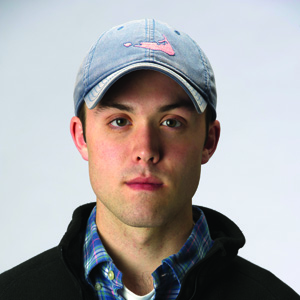
“You learn the most about yourself when you’re placed in an unfamiliar situation, whether you’re thrown into the streets of China never having spoken a lick of Mandarin or you go to Uganda never having eaten Ugandan cuisine,” Moran says. “The point is you have to be quick on your feet and adjust to any situation that comes your way. On top of that, you have to approach every situation as a leader and someone who’s ready to approach every challenge and dissect it and create a vision moving forward.”
With summer experiences ranging from rock climbing in Wyoming to working at a camp for children with life-threatening diseases to studying private equity trends in China behind him, the Massachusetts resident is now tasked with finding a professional internship. Even in entering financial services, he hopes to incorporate service and leadership into the traditional business sphere.
“I would say business in general is making more of an effort, because I think that’s what our generation demands,” he says. “I think our generation has been brought up as one [which] really appreciates the effects that service can have on the marginalized members of our society, and I think businesses are adapting to that mindset we hold.”
Nicole Sganga ’15
Areas of study: Film, television and theatre; political science; journalism
Interests: Documentaries, broadcast journalism
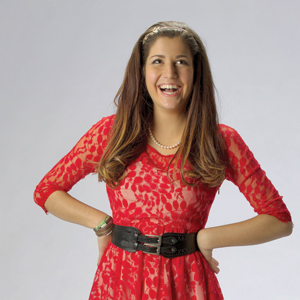
Sganga promised that if the Hesburgh-Yusko Scholars Program would buy her a video camera to bring to Thailand for her social justice summer, she’d bring back a video of her trip, and during the academic year she’d tape all of the program’s guest speakers. The director agreed but didn’t realize the camera would become the crux of Sganga’s service to the marginalized Shan people.
The refugees had fled from Myanmar to Thailand, where they aren’t recognized by the government and often work as undocumented laborers. In makeshift camps the Shan struggle with issues such as AIDS, alcoholism, divorce and general health. Their high rates of illiteracy, however, mean education and prevention are difficult.
While working with Help International, Sganga realized that the people lacked access to beneficial information, and she decided educational videos were a good way to teach people about AIDS transmission. But the solution wasn’t sustainable. Sganga began fundraising and, with the help of grassroots organizations within the Shan people, raised enough funds to purchase another camera and a tripod. With help from back home in New York, Sganga then raised enough for two laptops as well. Once she had the appropriate tools, she began teaching classes on shooting and editing video, and found some local actors. “We were directly involved in writing the script, getting the information, shooting it,” she says. With her guidance, the Shan people completed an AIDS video and have since finished their own film about divorce.
Sarah McGough ’14
Areas of study: Anthropology, Portuguese
Interests: Traditional and modern health, communal rituals
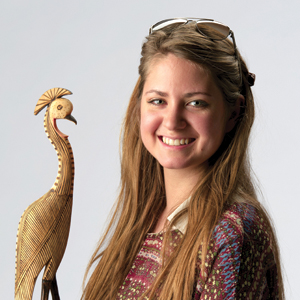
While studying child soldiers and reconciliation processes in northern Uganda after the Lord’s Resistance Army fled, McGough noticed that communities had taken on a group debt, or responsibility for the atrocities committed by child soldiers during the war, and were participating in communal cleansing ceremonies involving drinking the bitter root of a tree. She began thinking about health and healing in the context of communities as opposed to Western medicine, which brought her, one summer later, away from her home in California to study medicinal plants and spiritual healing with a local curandeira, or healer, in the subtropical rainforest of Brazil.
“Telling [people] that I’m going from studying post-conflict reconciliation in Northern Uganda and then traditional medicine in the rainforest of Brazil seems so wildly different.” She insists that from these dissimilar experiences she has been able to pull themes and ideas which resonate with one another to create a complete picture of health that challenged her conventional definitions.
“In all of the places I’ve spent my summers in, health is not defined by some Western or biomedical standard. Health is much more comprehensive, much more holistic. It’s the construction of the mental and emotional well-being. It’s the construction of the self and society and interpersonal relations.
“The beauty of [the program] is that I’ve been able to tap into all of my eclectic interests, which are seemingly disparate, but I see these connections across fields,” she says. “Every summer I go out and learn new things and connect it to previous summers in amazing ways that I could have never predicted.”
Chas Jhin ’14
Area of study: Computer science
Interests: Computer literacy, benefits of computer access
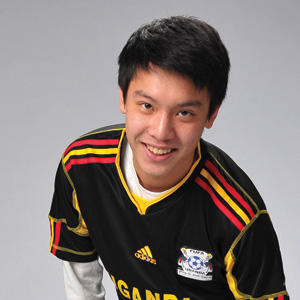
“Looking at the big picture relationship between technology and development [I asked], Is technology all that helpful? Does it really help people in a third-world developing country to have computers or is it a waste of money?”
To answer those questions, he teamed up with BOSCO (Battery Operated Systems for Community Outreach), founded by 1980 ND grads Gus Zuehlke and Thomas Loughran, to install solar-powered computers and teach computer literacy classes in refugee camps in northern Uganda.
“I think it’s important to give them the ability to get their voice out, both to communicate within their own community and to the outside world,” he says. “[The founders] went to the Ugandan people during the civil war they had with [the Lord’s Resistance Army] and asked the community members, ‘What do you guys want? Do you need food? Medicine?’ They said, ‘No, no, we have the U.N. and UNICEF giving us those things. We want to be able to communicate; we want the ability to tell our story, to have our voices heard.’”
He returned to Uganda for a second summer to analyze the tangible and intangible effects of technology on citizens of developing countries. He is now weighing domestic internship prospects in the field of computer science.
Dan Courtney ’15
Area of study: Civil engineering
Interests: Water contamination and purification in Uganda
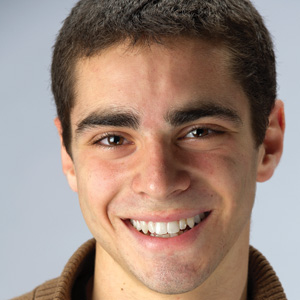
“I want to look at: Where does civil engineering affect people’s daily lives, or how can civil engineering affect people’s well-being?” Courtney says.
The Buffalo, New York, native took those questions to 12 villages in the parish of Nnindye, Uganda, ready to look for contaminated water pumps. He soon realized the issue went beyond bacteria. In order to keep the water clean and the pump functioning, the villagers needed to feel responsible for the upkeep of their pump.
“We were looking at: Does the community actually feel they have ownership in this? Are they maintaining it themselves? Or are they just waiting for other institutions to come in and fix it or build new ones?”
He sifted through data and wrote a paper based on his findings from more than 30 observation sessions and 130 interviews. He presented that paper to Uganda Martyrs University and at Notre Dame’s Human Development Conference in February.
Zoe Rote ’16
Areas of study: Political science, Spanish, education
Interest: Teaching
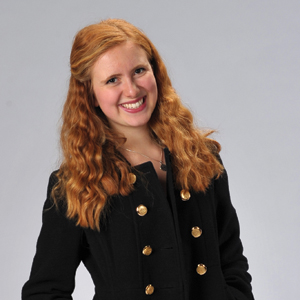
“I’ve always thought I wanted to be a teacher. When I was in high school my teachers and adults told me, ‘You can do so much better than that; you’re so smart…leave that to somebody else,’” she says. “But I don’t think that there is a more important job out there than teaching. Teachers have control, basically, of the future because they’re educating the next generation.”
Hoping to eventually join the Alliance for Catholic Education, a two-year service-through-teaching program, she spent her fall break tutoring in Appalachia and is eager to spend her social justice summer working in education.
“I’m so passionate about education, because it is so sustainable. It’s not just giving a kid a book. It’s teaching them how to read it and how to interpret it and how to apply it to the world around them, and giving them a desire to then go on and teach others as well. It’s just a wonderful cycle that I think can raise whole communities out of poverty.”
Gerie Mukumbi ’16
Areas of study: Creative writing, finance
Interests: Literacy, creative writing in native tongues
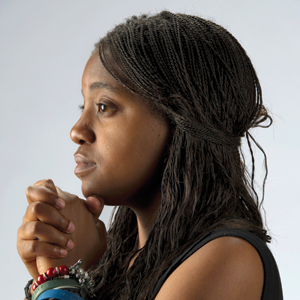
Recruited from the African Leadership Academy in South Africa, the Zimbabwe native aspires to take the lessons she learned backpacking in the Sierra Nevada Mountains and from her first year at Notre Dame and bring them back to Africa.
For her social justice summer, she has applied to Biblionef, a South African organization that provides books to underprivileged children in their vernacular languages, often a rarity.
“The very few African books that I read were about the jungle and monkeys, which isn’t a good thing to grow up reading because they’re stories you don’t really relate to,” she says. “To be able to work for an organization that is not only writing stories that children can understand but also that are in their home languages is pretty cool.”
Using her native language, Shona, and her comprehension of Ndebele, a dialect similar to Zulu, Mukumbi hopes to encourage the love of books she discovered as a child.
Peter Woo ’14
Areas of study: Finance, philosophy
Interests: Alternative, non-predatory loan systems
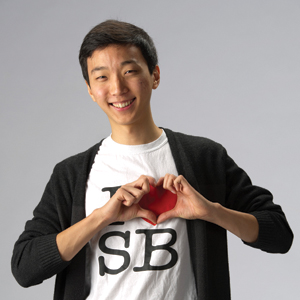
Growing up with missionary parents in Thailand, Woo came to Notre Dame to discover his own path to service, one that could incorporate his math and finance skills.
“Since February of 2012, I brought together a group of friends and we’re working to develop an alternative product to [predatory cash advance loans] so families can still borrow money but in a way that is relevant for their lifestyle and their budget. It’s been really great for me, because it’s been an explicit way I can use my interests in business and finance and apply that to the local community and see if it can make a difference.”
Their product, the Jubilee Initiative for Financial Inclusion, is being set up, and the group is looking for clients in the South Bend community.
Therese Germain ’15
Areas of study: Economics, Chinese, international development
Interest: Women’s economic impact in developing countries
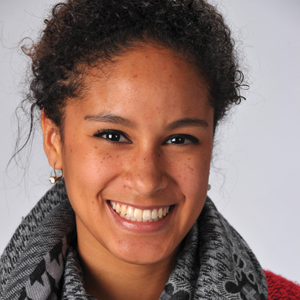
When Germain arrived in the Philippines after leaving her home in Florida, she immediately discovered that young girls often were facing such serious problems as sexual abuse, early pregnancy and sexually transmitted diseases. She put together a series of workshops that she called “Girls’ Ed.” Her goal in teaching the lessons, which ranged from nutrition to sexual education, was to heighten knowledge about the problems in order to end them.
“Especially in the developing world, but everywhere actually, women are susceptible to sexual abuse within their families and within their communities,” she says. “Spreading awareness to those girls [is important] because the ones who have been victims don’t know who to talk to or how to bring it up, and the ones who haven’t been a victim don’t know [the problem is] there,” she says.
Upon her return, she adapted the lessons for the Center for the Homeless in South Bend, so she could continue to inspire and instruct women.
Farrell Sheehan ’15
Areas of study: Preprofessional, history, philosophy
Interests: Medicine, obesity, burn care
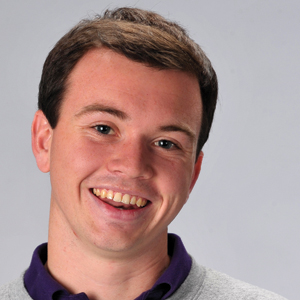
“You want to do good to live up to the bar that’s been set by everyone else,” Sheehan says of his scholarship program. But after spending the summer in the Dominican Republic studying pediatric burn care with Physicians for Peace, he seems to be setting a bar of his own.
Motivated by his goal to be a doctor, Sheehan first questioned the correlation between the type of pediatric burn and such factors as a child’s age, the level of education of the parents, where people were living and the number of people living in the household. As he followed the treatment and progress of several children, he looked at the disparity in care between public and private hospitals.
His research showed that private hospitals in the Dominican Republic were offering more efficient and comprehensive care than public hospitals. This summer he hopes to do another comparative study, this time between two developed countries. He will study obesity rates and treatment in London versus New York. “But I’m looking at a more cultural and more policy side of it,” he says.
Christina Gutierrez ’15
Area of study: Political science
Interests: Food policy, food security
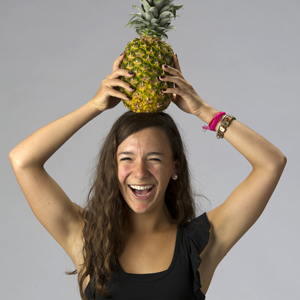
Gutierrez’s love for food began in childhood when she’d check out cookbooks from the library while her friends read novels. At 10 she asked her parents if she could prepare dinner each night for her family, a deal they happily accepted. As they moved around from Peru to Chile to Italy and back to Minnesota, she realized the United States was the only place where processed goods and fast food were norms, but to her the importance of organic food increased when her brother was diagnosed with cancer. “When an 11-year-old gets cancer, you stop and ask, ‘What is wrong?’” she says, “Obviously the food you put into your body at least three times a day affects you beyond just losing and gaining weight.”
Since then, she’s devoted herself to food policy and food security, which she’ll continue this summer at the Rudd Center for Food Policy and Obesity at Yale, because she believes healthy, delicious food should be accessible and inexpensive. She spent this past summer planting coffee crops, harvesting honey, picking vegetables and studying sustainable and natural farming in Costa Rica at the Asociación de Productores La Amistad.
“There you do it the old way, because this is the way people used to do it, this is the way people have always done it, why would you change it? Why would you put all these chemicals into the soil?” she asks. “And you’re practically poisoning your food, which you’re going to put into your body.”
Kyle Witzigman ’16
Areas of study: Political science, public service
Interests: International relations, international adoption regulation
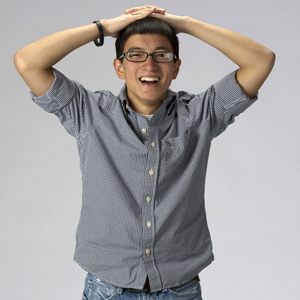
When Witzigman was adopted from Vietnam as a baby, his parents were informed by their adoption organization that someone had tried to sell the agency two babies illegally and without the proper paperwork to live in the United States. Looking back, Witzigman notes the dangers of these relatively common exchanges and how many children’s lives are put in danger. That’s why, even as a freshman, he’s devoted to working on international adoption reform and regulations.
“The practices of ethics and morals vary . . . so you’re never sure what you’re getting,” he says. “What I’d like to do in the future is work on creating either a nongovernmental organization or a nonprofit or some sort of policing organization which practices doing the right things to make sure these children are finding a safe home.”
With child endangerment and unethical international adoptions as the issues he’d like to address, he’s hoping to spend his upcoming social justice summer looking at everything from the paperwork to the red tape to the most basic realities of international adoption.
Patrick Conry ’13, Ph.D. candidate
Areas of study: Civil engineering, classics
Interests: Archaeology, urban climates, historic preservation
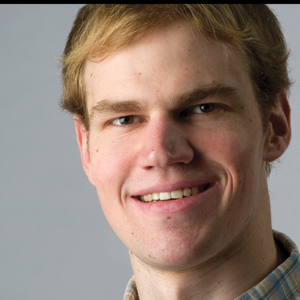
After receiving a mass email from the classics department, asking if anyone would be interested in an archaeological dig in Albania, Conry jumped on the opportunity to combine his diverse majors. With repeated funding from the Reilly Center, Conry has now made it to Albania three times, once to Mursi and twice to Butrint, which was a major Mediterranean port in the Roman Empire. On the archaeological digs, he used his knowledge of Roman civilizations and his experience with geology, geotechnical engineering and stratigraphy, the study of rock layering.
Recently named a Reilly Scholar for embodying the ideals of the five-year, dual-degree program, he also graduated a semester early and began work toward a doctorate in environmental fluid dynamics at Notre Dame. He hopes the field will permit him to fuse his experiences in archaeology and engineering so he can study urban climates and meteorology and their effects on historical sites.
“I’m thinking of using that, hopefully, someday to help better preserve historic sites that are within urban centers, because they have a lot of problems. Like right now the Colosseum [in Rome] is turning black because of carbon dioxide from traffic on the streets that drives right by it.”
Catherine Reidy ’13
Areas of study: Psychology, anthropology
Interests: International psychology
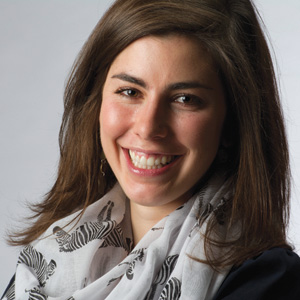
After watching her older brothers travel to Uganda with help from Notre Dame, Reidy knew the University offered opportunities for research and service but was unsure where to find them. She discovered the International Development Research Council and was encouraged to apply for grant funding through the Kellogg Institute for International Studies. By the end of her freshman year, not only had she received a Kellogg internship in India, she also had been accepted to its International Scholars Program. Within that program, she served as a research assistant to Catherine Bolten, an assistant professor of anthropology, and gained greater access to the internships and funding Kellogg could provide.
With Bolten, she began looking at the lack of career opportunities for educated youth in Sierra Leone. Again she applied for funding and received support that allowed her to take two trips to the West African country to collect data for a manuscript she hopes to publish.
Meanwhile, the Rhodes Scholarship finalist is writing a senior thesis about Vukovar, Croatia, and socialized tensions between ethnic groups for the Department of Psychology and is also working on a project with psychology Professor E. Mark Cummings titled Children and Political Violence in Northern Ireland.
“Once you start [research] it’s kind of addicting. You start getting more and more questions and you find more and more similarities across cultures and contexts, and you want to see all of them,” she says. “The fact that I’ve been able to go to this many places and do this many things, all with the support of Notre Dame, is incredible, and I think that’s pretty unique to this university.”
Carl Silliman ’13
Area of study: Architecture
Interests: Urban development
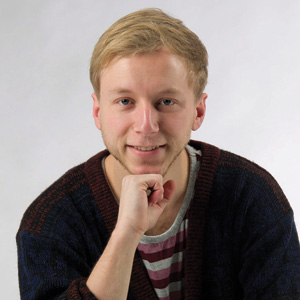
Using a network of professors at Notre Dame, the Kellogg Institute and a Laura W. Bush Traveling Fellowship, Silliman found himself riding horseback with Tulku Tsori Rinpoche, a lama of the Tibetan Order, and a group of monks across Nepal and India, where the locals greeted them by lying prostrate and putting flowers at their feet. “Traveling around with [Rinpoche], I felt like I was traveling around with Jesus,” he says. During their travels, Silliman studied traditional Tibetan architecture and urban planning so he could redesign a village in Mainpat, India, a cluster of seven Tibetan refugee camps with no public space and buildings in poor condition.
The problem, he notes, is that the camps were designed in a modern fashion so they are difficult to navigate without a car, and fail to uphold Tibetan culture. As his architecture thesis, he has the task of redesigning the layout of the camps, creating public spaces, and conceiving of a new school and campus to house 750 students instead of 50.
The experience, in combination with others he took advantage of while at Notre Dame, should help him with career placement in May, he says.
“I think I am creative, but I think also the fact that I’ve had so many experiences [is beneficial],” he says. “I was in India and Nepal; I went to Ketchikan, Alaska, and worked for an architecture firm there; I worked for Habitat for Humanity in Chattanooga, Tennessee. Just having all those experiences, I think that helps you a lot in architecture as much as any other profession, because what you see is what you have to go on.”
Tara Hunt is an associate editor of this magazine.